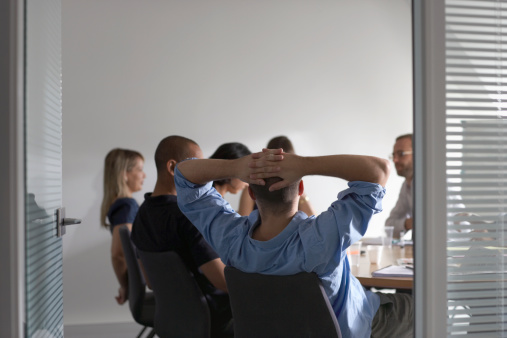Reasons meetings go wrong: and how to make them better
Many people hate meetings because they seem like a waste of time and can bring up more questions than they answer. But meetings are important to keep people informed and make sure that they’re working together effectively. However, when they aren’t run efficiently and don’t get the right message across, they can be a waste of time. And in an increasingly busy world – time is money.
 What makes a bad meeting?
What makes a bad meeting?
- unrealistic expectations
- lack of structure
- poor leadership
- uncomfortable environment
The first three problems could be caused by a lack of communication. If the person running the meeting doesn’t make their needs clear before the meeting takes place, participants can arrive unprepared and not know what to expect. This can lead to confusion and frustration as everyone talks endlessly about the same thing and nothing is resolved. Event organisers and PAs booking rooms for meetings need to communicate with everyone involved to ensure that all their needs are met. For example, do they need an interactive whiteboard or internet access? Are there enough chairs? How formal does the venue need to be? What makes a good meeting?
- Communication, communication, communication. The whole purpose of having a meeting is to bring people together and share ideas in order to find solutions – so make sure you communicate in the best way possible.
- Don’t hold a meeting just to “have a catch-up” – you need to have a clear idea of what you want to achieve. After all, people have busy jobs and don’t want to waste their precious time.
- Ask yourself – who really needs to be there? There’s no point calling a whole-department meeting if only a few individuals are essential to achieve the desired outcome.
- Set a clear agenda in advance and make sure everyone has seen it. That way everyone knows what to expect and how to prepare for the meeting.
3 tips for effective meetings
- Set a goal
-
- Preparation is the key to a good meeting. If you know what you want to get out of the meeting before you arrive, you’ll be more likely to get a good result by the end of it.
- Determine the ‘who, what, why and how?’
-
- Set a clear agenda and stick to it. Good meetings require a strong leader to keep discussions on track on avoid running over the allotted time. Outline who needs to speak about a particular subject beforehand and make sure they understand what is expected of them. When allocating actions during the meeting, make sure those responsible are paying attention and know why and how they are taking things forward.
- Keep focused
-
- Everyone loves a chat – especially if there’s some good office gossip to catch up on! But make sure that everyone sticks to the plan and stays focused on the subject. You’ll need to come up with innovative ways to keep people’s interest – provide food and drinks, encourage brainstorming and interaction, use visual ideas. And leave time at the end for your colleagues to enjoy a coffee and a catch-up – it’s sure to make you popular…
Posted by Ashleigh Sharp
Share this post
Tags
- Career Development
- Celebrity Meetings
- Conferences
- Confidence
- Exhibitions
- Historic Meetings
- How to Interview Effectively
- Human Resources
- In The Press
- Meetings and Conferences
- Monarchy
- News
- Our Team
- Personal Development
- Personnel
- Presentation Techniques
- Teamwork
- Top Tips for Meetings
- Training & Workshops
- Video Conferences



